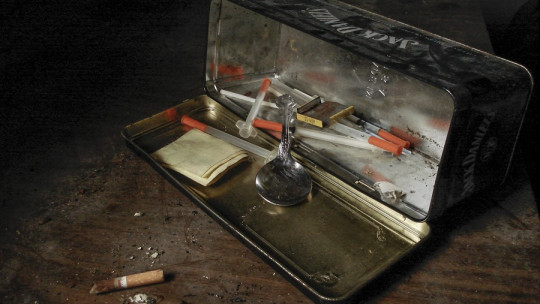
The problem related to substance abuse is a challenge that affects individuals and families around the world. Drugs can infiltrate everyday life, leading to devastating consequences This problem knows no socioeconomic or cultural barriers, and it is crucial to understand its scope to address it effectively.
Substance abuse, whether illegal substances or prescription drugs, can affect the mental and physical health of those who use them. Furthermore, the social and family implications are significant. Relationships are affected, and family dynamics can change abruptly. It is essential to recognize that the impact extends beyond the individual, reaching those around them, especially their children.
By understanding the breadth of this problem, we can approach the conversation with our children from an informed perspective. By providing context about the seriousness of the situation, we establish the foundation for honest and constructive communication about the drug problem and its impact on the family. In this article, we are going to give some keys to guide you in how to tell your son or daughter that you have a drug problem
Recognize the problem
The first step to overcoming any challenge is to recognize its existence. Honestly acknowledging that a drug problem exists is essential before undertaking the difficult task of sharing it with your child. Denial or fear can often be difficult barriers to overcome, but admitting reality is a brave act that marks the beginning of the road to recovery.
The stigma associated with drug problems often prevents people from admitting their internal struggles However, it is vital to understand that recognition does not imply weakness; On the contrary, he shows considerable strength in facing the situation head-on. This step not only allows the personal healing process to begin, but also lays the foundation for open and honest communication with your child.
By recognizing the problem, you open yourself to the possibility of building bridges of understanding with your child. This act of sincerity will not only strengthen your own resilience, but will also lay the foundation for mutual support on the road to recovery. Honesty with yourself and others is the foundation on which rebuilding your life and relationships is built.
Prepare for the conversation
Preparing to talk to your child about a drug problem is a crucial step that requires both reflection and empathy. Before engaging in the conversation, it is essential to take care of your own emotional and mental well-being. Recognize your own emotions, fears and anxieties, and seek the necessary support from friends, family or health professionals.
Empathy plays a fundamental role in this process Try to understand your child’s perspective and anticipate possible reactions. Set the stage for the conversation by making sure the environment is conducive, free of distractions, and with enough time to address any concerns. Before you begin, organize your thoughts to clearly convey the situation.
Use clear and accessible language, avoiding technical jargon that may confuse. Encourage open dialogue, encouraging your child to express his emotions and questions.
Remember, this conversation is an ongoing process. Initial preparation is only the first step in a joint journey toward understanding and recovery. Be willing to learn and adapt as you progress on this delicate but necessary journey with your child.
Address the conversation
Starting a conversation with your child about a drug problem can be challenging, but approaching it with sensitivity and sincerity is essential. Start by recognizing the importance of open dialogue and how it will strengthen your relationship.
Choose a quiet time free of distractions to ensure that you both have the necessary attention. Approach the conversation gently, expressing your desire to talk about something important. Use an understanding tone and avoid any defensive attitude. Share your own reflections on the problem, focusing on how it affects your life and, therefore, the family dynamic.
During the conversation, emphasize that the problem is not their fault and that your love for them has not changed. Foster a safe space for them to express their emotions and questions. Listen with empathy and avoid interrupting, allowing them to process the information.
Provide clear information about the problem, using understandable language and avoiding unnecessary details. He points out that the goal is to seek help and overcome this situation together. Encourage your child to express his thoughts and feelings, and reassure him that you are in this together as a family.
Open communication and mutual understanding are essential in this process. Remember that this conversation marks the beginning of a journey toward recovery and family strength.
Professional and therapeutic support
On the journey to recovery, it is crucial to seek professional support. Teams of mental health and addiction specialists are available to offer guidance and treatment. You are not alone on this path; There are resources such as therapists, counselors, and support groups that can provide specialized help. Recognizing the need for professional assistance is a brave and necessary step to guarantee an effective and sustainable recovery process for both you and your family.
As we come to the end of this difficult conversation, it is important to recognize that the road to recovery and mutual understanding is just beginning. Honesty and empathy are the foundations on which you will build a healthier future together. Remember that addiction is a battle that can be fought with the right support.








